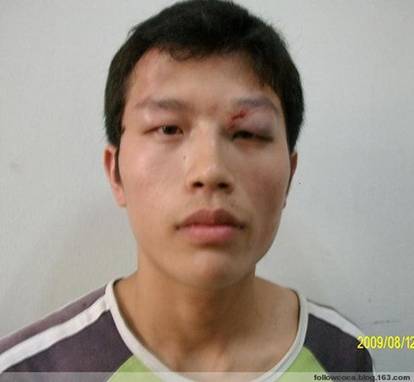Coke partner says to offer 'dispatch workers' staff status
CCSG and SACOM claim that Article 66 of China's labor contract law allows workplaces to use workers supplied by agencies only as "temporary, auxiliary or substitute workers." They say Coca Cola bottling plants where, according to their investigations, some production line contractors have been working continuously for as long as 10 years, are in clear violation of the law.
Coca Cola however insist their use of contract labor is lawful. Company spokesman Kenth Kaerhoeg told China.org.cn, "Following the concerns expressed by the students, we engaged an independent third party auditor to conduct further audits of the relevant bottlers and their contract labor providers. These further audits have not found the bottlers' use of contract labor to be in violation of the Chinese labor laws."
Nevertheless the apparent move by Swire to curtail the use of contract labor indicates that the company may fear it is in a legal grey area regarding the use of agency staff, and does not want to see an escalating campaign on the issue by pressure groups.
CCSG also said the companies had failed to answer detailed allegations that production line workers at the Zhongcui bottling plant were being paid less than the local legal minimum wage of 960 yuan (US$140) per month (about 5.5 yuan or 80 US cents per hour paid at the standard rate).
China.org.cn asked Coca Cola to disclose hourly rates of pay for production workers at the Hangzhou plant, but the company was only prepared to refer to its recent audit which, it said, "confirmed that all workers were paid according to the law both for normal working hours and overtime." Asked why the company refused to publish the results of the audit, as requested by the students, the spokesman said it was to respect the confidentiality of workers who had taken part.
Kenth Kaerhoeg also drew attention to a report by the Hangzhou government labor department that he claimed showed workers at the bottling plant were paid in a manner "fully compliant with local labor law." In point of fact, the rather perfunctory one-page report narrowly addresses the issue of CCSG students' status during their temporary employment at the bottling plant. It says nothing about the general level or lawfulness of wages and working conditions.
Perhaps predictably in business-friendly Hangzhou, capital of Zhejiang, one of China's richest and most reform-minded provinces, the labor department statement supported the company position regarding the treatment of the students. But according to a legal expert consulted by China.org.cn, the report contains errors on points of law, for example arguing, incorrectly, that since the students had not used a university-approved agency to find their jobs, that they had not been, legally speaking, employees.
 |
|
Student Xiao Liang was beaten when he asked for his wages from a contract labor agency after working in a Coca Cola bottling plant. Publicity surrounding the case may have helped persuade Coca Cola partner Swire Beverages to change its policy on the use of agency or "dispatch" workers. |
When one of the students, Xiao Liang, went to ask for his wages after leaving the factory, he was hospitalized following a clash with an employee of his direct employer, the Zhiqiang contract labor agency. The students say the incident exemplifies the coercive working conditions contract workers face on a regular basis. It seems likely that the resulting publicity led Coca Cola and Swire to seek a meeting with the students.
 0 Comments
0 Comments







Comments